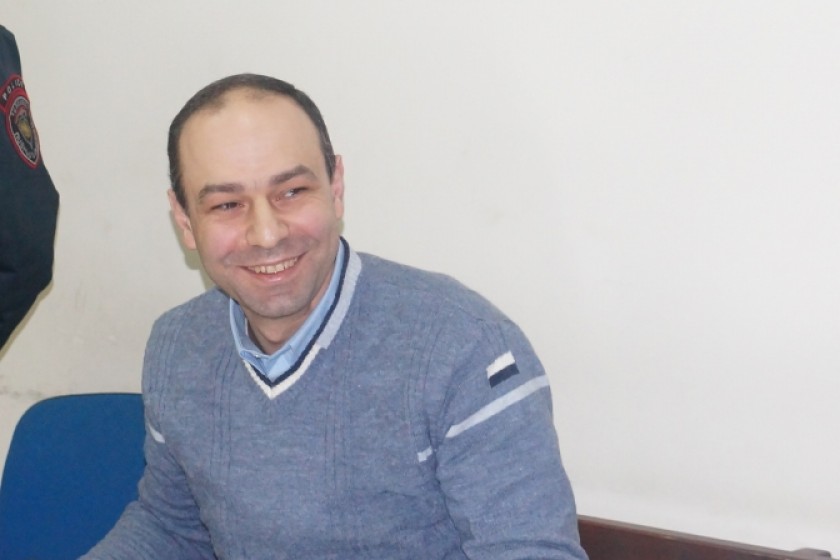
Armenia’s “Idle” Prison Population: Computer and Other Job Skills Training A Must
By Mher Yenokyan: Hetq’s Correspondent at Nubarashen Prison
I’m set to graduate Yerevan’s Russian-Armenian (Slavonic) University in three months. I’m now writing my diplomatic work. My friends and family are sending me all sorts of books and other material culled from bookstores, libraries and the internet.
I’m writing about the theoretical and practical aspects of reopening criminal cases.
When I entered university five years ago, my relatives brought me a computer. I was allowed three hours a day to use it; first as a student, and then as a special correspondent for Hetq.
But, I must confess, I had no clue how to use the machine. I set it up – the monitor, keyboard, mouse and processor – by following the instruction manual. I then experimented with the keys, seeing what each one did. From zero, I was slowly learning what each first grader takes for granted today.
The world moves forward every day. Computer technologies advance at a fast clip. Computer skills are a must for job seekers in almost all sectors.
In our prisons, however, you can encounter people still living in the 19th century. When they stripped me of my freedom, the computers were rudimentary and not widely used. Computers today can be found in all households, just like TVs. Those of us behind bars, especially those still living in the past century, must be given the chance to catch up with the modern world.
I follow the case of Arsen Artzrouni. He’d been imprisoned for 23 years. He could have been conditionally released three years ago. But like the other thirty prisoners originally sentenced to death, he wasn’t released. The case is now at the appeals court.
I lived with Arsen in the same cell for six months. I saw how he lived. He read from dawn till dusk, taking notes. He used his time wisely.
Arsen’s relentless struggle with the Nubarashen prison administration paid off. In 2006, he was allocated a room where he would teach English to the lifers; including me. Sadly, those lessons only lasted a few months.
Arsen was the first to be acted to university and served as a great example to us future students. Today, in Nubarashen, there are four lifers enrolled in a university course.
Arsen was studying psychology and was interested in studying how prison conditions affected the longevity of those serving life sentences. One of the four lifers has followed Arsen’s example and is majoring in psychology.
I’m the first in my family majoring in law. I hope that others will follow my example and pursue law degrees.
In my articles I periodically write about the objectives of punishment, stressing the importance of an education and having a job. This isn’t just my opinion. People must be given these opportunities, and these things must be our government’s paramount concern.
I have written about all this in my course work, presenting the track record of developed states. From the first day of imprisonment, in the U.S, Japan, Canada or Europe, the state offers convicts some type of work and the chance to acquire job skills.
In Germany, a large part of a convict’s salary is deposited in a bank account. When released, the convict will have an emergency fund to live on until finding permanent work.
In Armenia’s jails and prisons, thousands of grown men mostly drift through the hours and the days with little to do.
Learning is an expensive luxury and work doesn’t exist.
 Videos
Videos Photos
Photos




Write a comment